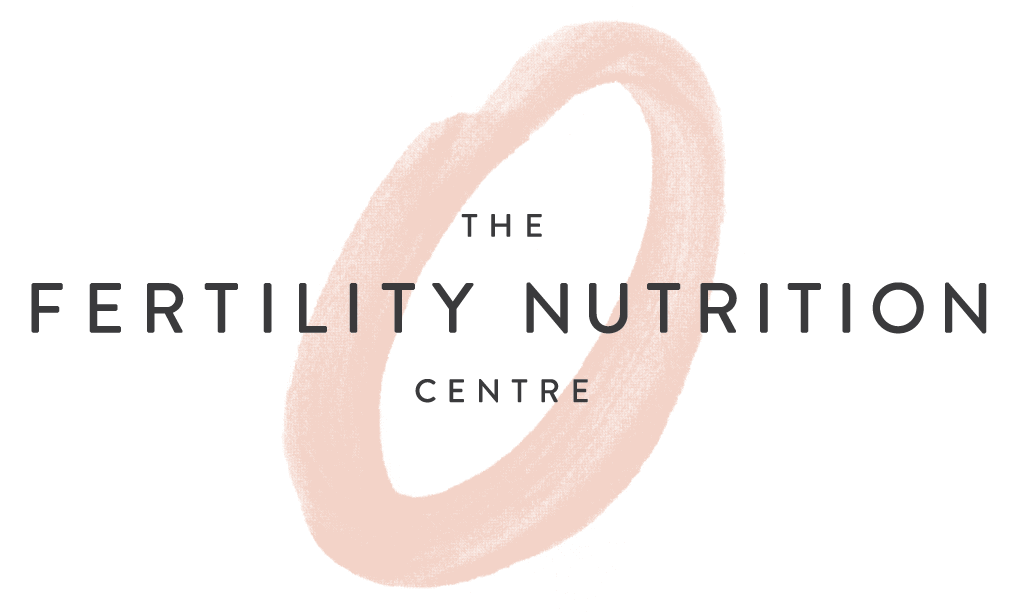
Balancing Blood Sugar for Optimal Fertility: A Nutritional Guide by Fertility Nutritionist Julia Young
Many factors come into play in the quest to optimise fertility, from diet and exercise to stress management. However, one often overlooked aspect is blood sugar balance. Maintaining stable blood sugar levels is crucial for overall health and plays a significant role in supporting reproductive health. Let’s explore how blood sugar affects fertility and what steps you can take to keep it balanced.
Why Blood Sugar Balance Matters for Fertility

Blood sugar, or glucose, is the body’s primary energy source. After eating, the body breaks down carbohydrates into glucose, which enters the bloodstream. The hormone insulin then helps move glucose into cells to be used for energy. However, when blood sugar levels fluctuate wildly, it can lead to insulin resistance, where cells become less responsive to insulin. This condition can have several negative effects on fertility:
- Hormonal Imbalance: Insulin resistance can disrupt the balance of reproductive hormones. For women, this can interfere with ovulation, making it more difficult to conceive. For men, it can reduce testosterone levels, affecting sperm quality.
- Weight Gain: Unstable blood sugar levels can contribute to weight gain, which is a known risk factor for infertility. Excess weight can lead to irregular menstrual cycles in women and reduced sperm count in men.
- Impact on Egg and Sperm Quality: High blood sugar levels can lead to oxidative stress, which damages cells, and that includes eggs and sperm. This damage can reduce the chances of a healthy conception and increase the risk of miscarriage.
- Reduced IVF Success: For couples undergoing fertility treatments like IVF, unbalanced blood sugar levels are associated with fewer eggs retrieved, lower fertilisation rates, and reduced embryo quality.
How to Achieve Blood Sugar Balance for Fertility

Maintaining stable blood sugar levels involves making thoughtful dietary choices. Here are some practical tips to help you keep your blood sugar in check:
- Start with a Balanced Breakfast: The first meal of the day sets the tone for your blood sugar levels. Avoid high-sugar and refined carbohydrate options like sugary cereals and white toast. Instead, choose a breakfast with protein, healthy fats, and fibre. For example, a bowl of oatmeal topped with nuts and seeds and a serving of Greek yoghurt can provide sustained energy without spiking blood sugar.
- Focus on Fibre-Rich Foods: Fibre slows down the digestion of carbohydrates, gradually releasing glucose into the bloodstream. Incorporate plenty of fibre-rich foods such as vegetables, fruits, legumes, and whole grains. Not only does this help stabilise blood sugar, but it also supports gut health and promotes satiety.
- Incorporate Protein and Healthy Fats: Including protein and healthy fats in every meal can help prevent blood sugar spikes. Foods like lean meats, fish, eggs, nuts, seeds, and avocados are excellent choices. These nutrients take longer to digest, which helps keep blood sugar levels steady.
- Avoid Refined Carbohydrates and Sugary Foods: Refined carbs and sugary snacks cause rapid spikes in blood sugar, followed by sharp crashes, leading to a cycle of energy highs and lows. Limit foods like white bread, pastries, sugary drinks, and sweets. Instead, choose whole grains like brown rice, quinoa, and wholegrain bread.
- Stay Hydrated and Be Mindful of Caffeine: Dehydration can affect blood sugar levels, so make sure to drink plenty of water throughout the day. Also, be mindful of your caffeine intake, as it can influence insulin sensitivity and potentially disrupt blood sugar balance.
The Connection Between Blood Sugar and Stress

It’s important to recognise that blood sugar balance isn’t just about what you eat. Stress can also impact blood sugar levels. When stressed, the body releases the hormone cortisol, which raises blood sugar. Chronic stress can lead to persistently high blood sugar levels, exacerbating insulin resistance and disrupting fertility. Incorporating stress-reduction techniques such as mindfulness, meditation, or regular physical activity can help keep both stress and blood sugar in check.
The importance of quality sleep and blood sugar

Quality sleep plays a vital role in maintaining balanced blood sugar levels, which is crucial for fertility. Poor or insufficient sleep can lead to insulin resistance, making it harder for the body to regulate glucose effectively. During sleep, the body undergoes various processes that help stabilise blood sugar levels. When sleep is disrupted, cortisol (a stress hormone) levels increase, leading to elevated blood sugar levels. This can also affect the balance of hunger-regulating hormones like ghrelin and leptin, increasing cravings for sugary, high-carb foods, which can further destabilise blood sugar.
Prioritising good sleep hygiene can support balanced blood sugar and enhance fertility. Aim for 7-8 hours of quality sleep each night, maintain a regular sleep schedule, and create a calming bedtime routine. These practices will help improve insulin sensitivity, making it easier for your body to manage glucose levels, which is beneficial for both overall health and reproductive wellness.

Achieving and maintaining balanced blood sugar levels is a critical component of optimising fertility. You can support your body’s natural hormonal balance by focusing on a nutrient-dense diet that includes fibre, protein, and healthy fats while minimising refined carbs and sugars. Additionally, managing stress and staying hydrated are key factors in maintaining stable blood sugar levels. As you work towards your fertility goals, remember that small, consistent changes in your diet and lifestyle can have a significant impact on your overall reproductive health.
This blog post is written by Julia Young, a BANT Registered Nutritional Therapist specializing in fertility for couples. Having overcome her own fertility struggles, including PCOS and amenorrhea, Julia is passionate about helping others achieve their dream of parenthood. She offers personalized nutrition and lifestyle support, focusing on uncovering the root causes of fertility challenges. With a special interest in IVF preparation, PCOS, and secondary infertility, Julia empowers her clients with evidence-based strategies to support conception and a healthy pregnancy.
Listen to: How to get pregnant with PCOS with Julia Young
Listen to: What I would like to tell my younger self about infertility with Julia Young
Download: Julia’s new FREE PCOS and fertility Guide here
Follow: Julia on Instagram here
Discover: Julia’s website here

Don’t forget to follow our Instagram page for more fertility nutrition tips from our team of certified practitioners.
Or click here, and head to our directory to book a free introductory chat with a team member.




